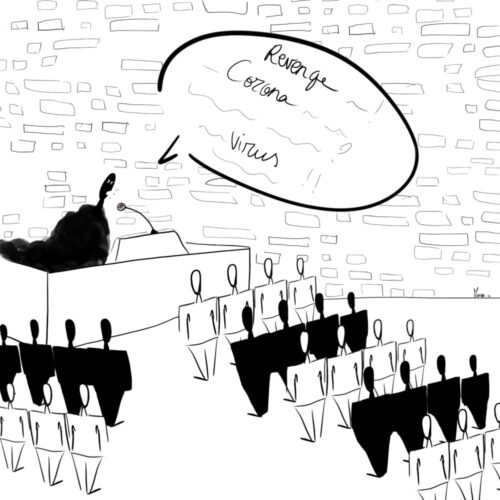Bay Area Sees Rise in Violence Against the Asian American Community
By Casey Michie
A rise in recent violence against the Asian American community in the Bay Area has prompted action from both community members and organizations determined to quell the rise of xenophobic hate.
These attacks point to a disturbing trend of anti-Asian sentiment that has fueled attacks across the region. Stop AAPI Hate, an initiative created to collect data and respond to these acts of hate, reported 2,808 accounts of anti-Asian violence across the country between March and December of 2020, with more than 700 of these cases reported in the Bay Area. These numbers signal a startling rise of attacks since the beginning of the pandemic.
This rise of violence can in some parts be attributed to racist rhetoric employed by politicians throughout the pandemic. Rhetoric such as then-president Trump’s use of the phrase “China Virus” to describe the disease COVID-19, has emboldened hateful sentiment and worsened tensions of systematic racism.

These brazen attacks and acts of violence have so far left one man dead. On Jan. 28, Vicha Ratanapakdee, 84, was on a morning walk in the Anza Vista neighborhood of San Francisco when an attacker shoved him to the pavement. Mr. Ratanapakdee succumbed to his injuries two days later at San Francisco General Hospital.
Whether this attack was racially motivated has not been officially determined. Sliman Nawabi, the public defender for Mr. Ratanapakdee’s attacker, stated that there is “absolutely zero evidence that Mr. Ratanapakdee’s ethnicity and age was a motivating factor in being assaulted.”
Still Mr. Ratanapakdee’s attack is one of many that has hurt the Asian American community in recent weeks. Other attacks across the region include acts of physical assault, verbal harassment, shunning, discrimination, robbery and vandalism towards community members and businesses.
“We are outraged by the disturbing incidents we’ve seen this past week where Asian American elders have been attacked in the San Francisco Bay Area. These violent assaults have a devastating impact on our community as they are part of an alarming rise in anti-Asian American hate during the COVID-19 pandemic.” A spokesman from the Stop AAPI Hate noted regarding the attacks.
And while the Bay Area appears to be the epicenter of the current crisis, the rise of hate crimes perpetrated against the Asian American community has risen sharply across the nation as well. According to data from the New York Police Department, hate crimes against the Asian American community have risen 1,200% in the last year.
This troubling data has prompted action from government, community members and organizations. Increased policing and community-led foot patrols have been employed in both San Francisco and Oakland as legislators across the nation work on solutions to keep communities safe.
Cynthia Choi, co-founder of Stop AAPI Hate, notes that the legislative answer to the rise in hate shouldn’t be accomplished by more policing. “You can’t police people out of already held prejudices. We need to invest in community-based programs, public education, mental health services as well as intervention and prevention initiatives,” Choi said.
And while legislation is a key piece of the solution, action from members of the community is just as important. The Stop AAPI Hate website offers resources and tools to report instances of hate witnessed by the general public. Choi notes that one of the most important ways an individual can get involved is to not be silent; “What hurts the most is when people say or do nothing.”
Other organizations such as the Chinese For Affirmative Action (CAA) offer a wide array of tools and information for those interested in supporting the community. The organization notes that they serve to strengthen the community by offering “direct services, leadership development, and civic engagement programs that nurture and harness the ability of community members to participate fully in civic life.” In this way, both Stop AAPI Hate and CAA emphasize solutions that revolve around community outreach and engagement from individuals.
“Every generation must choose if they will accept things the way they are, or decide that enough is enough and make a statement that what is happening is wrong,” Choi said. “These topics [of hate] are important to talk about. We must ask ourselves: What is going to create transformative change?”
Students at City College interested in taking action to quell the recent violence, can visit the CCSF Asian American Studies Facebook page. The page is a resource with both updates and information on opportunities to get involved to create a safer community for all.
